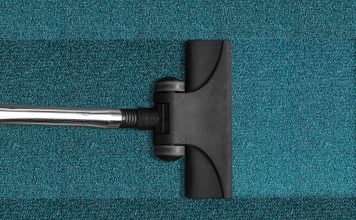 |
|
| Issue #62 • March/April, 2000 |
More than 10 years ago, my friend Mark Seiden called me in on a murder case in Miami that Janet Reno, then State’s Attorney for the county in question, had ordered prosecuted. A woman named Mary Hopkin had killed her common law husband, a man named James Yarolem.
James was in his forties. Mary was 63. Her life had been hard, and when she found a younger man who convinced her he loved her, she took him into her home. This did not turn out to be a wise decision.
Mary worked. Jim didn’t. He drank and smoked up all the money she brought in. He abused her, with the classic escalation. First, verbal derisiveness. Then the shove with the palm. Then the slap of the open hand. Then the blow of the closed fist. The time came when she confronted him and said, “Jim, you drink all my beer, and you smoke all my cigarettes, and you won’t get a job, and … I think it’s time you left.” Even then, being in the classic denial pattern of a battered significant other, she couldn’t bring herself to say, “Oh, and by the way, you beat the crap out of me whenever you feel like it.”
She didn’t need to say it. Jim didn’t handle her declaration well. He began to beat her up with more vigor than before. She went to call the police, and Jim ripped the telephone out of the wall, wrapped the phone cord around her neck, and strangled her unconscious. He left her for dead and went off to the nearest bar. When Mary awoke, she crawledshe couldn’t walk on her arthritic and aging legs, she crawledto the nearest trailer to hers and when she got there blurted, “Call the police.”
The cops arrived. When Jim came back Metro-Dade officers were there. They arrested him. When they dragged him away, the cops testified later, he was screaming “Mary, you f—in’ bitch, I’ll kill you for this!”
Very soon thereafter, he was out on bail and he came to make good his threat. By now, Mary was in terror of him, and had borrowed from her son the cheapest revolver available, an RG .22. The RG is the gun that Handgun Control Inc. is trying to talk about when they rail on about “Saturday Night Specials.” If you left it on a hot stove it might melt.
Jim pounded on the door like the big bad wolf. “Mary, let me in!” “Jim,” she answered, “I know what you’re going to do! I have a gun! I won’t let you kill me! Go away! Don’t make me shoot you!”
He didn’t listen. He smashed the door off its hinges and came at her, and she fired three shots. All three .22 bullets hit him. He turned and ran, got about 20 feet, and collapsed and died. To make a long story short, she was charged with murder.
She had no money. Mark Seiden, her attorney, took her case anyway. Mark was a former homicide cop for Metro-Dade before he became a lawyer. I did what he did, after he called me. I took the case pro bono, at no charge. After I spent an hour with Mark on direct examination explaining to the jury why she had no choice but to shoot, I took out the prosecutor in a little less than a minute of cross examination. The jury was quick, too: they took about two hours to acquit her of all charges.
I remember this, and I flash forward to yesterday, at one of the regularly scheduled qualifications for my police department. I shot a gun the agency has already approved as optional and is thinking of adopting for standard issue, the Ruger P97 that I’ve written about in this column before. This .45 automatic recently put 60 bullets into less than 3.5 inches during a timed FBI-style shooting qualification. I am authorized to carry whatever pistol I want, including my custom $3500 “LFI Special” Colt .45 automatic. Instead, right now, I carry this $460 Ruger. The qualification also encompassed the .223 rifle. I didn’t shoot that with the $2,000 custom CAR-15 from Olympic Arms that I’m authorized to carry; I shot it with our department issue Ruger Mini-14 .223 that would cost you only a few hundred bucks. Price one at Wal-Mart or K-Mart and you’ll see, though I’d rather you spent a couple bucks more and bought it from a gun dealer who supports your Second Amendment rights, which is why I buy my guns at gunshops instead of Monster Marts. But, I digress.
The pistol course required 60 shots. All 60 went center and I scored 100%. The rifle course was 50 shots, actually 45 with the rifle including half a dozen head-shots, and another five rounds with the pistol in “rifle-to-handgun-transition.” These “cheap guns” gave me a 99.6% score that wouldn’t have been different with my more expensive guns, because it was me who jerked the trigger and blew the shot that cost me one point.
My department regulations allow me to carry a custom made rifle that costs several thousands of dollars with me in the patrol car. I used to do that. Frankly, I don’t bother anymore. Each of our cruisers contains the Mini-14 for any of our officers to access, and to be blunt, it does the same job just about as well.
The last time I carried my $3500 custom pistol in uniform was a couple of years ago. I and some other officers were working security for a double police funeral where it was feared that the cop-killerwho himself was slain by police on the day of the murdersmight have friends who would want to avenge him by harming any of the several thousand police officers in attendance for the funeral. We who covered the perimeter were ordered that we couldn’t have rifles evident, for fear of people being frightened and made paranoid. I carried that expensive .45 pistol that day because I knew that with 185-grain +P hollowpoints, it would hit what I aimed at from 100 yards if something went down in the wide-open venues that ranged from a downtown cortege to the burial at the equally wide-open cemetery.
Nothing happened. The cop-killer, it turned out, had been a lone wolf. After it was over, I went to the firing range and tested my department issue Ruger P90 .45 automatic. It shot eight rounds for eight into a man-size target at 100 yards. It would have done the job
all along.
So, what’s the lesson? It’s simple, really, and it touches deeply upon the values that make you read publications like Backwoods Home Magazine.
Simple can be as good as fancy, and is sometimes better. Inexpensive can be as good as expensive, and sometimes is better. “Reliability” is more important than “esoteric” in the final balance. Something cheap, now when you need it, beats hell out of something costly that you have to save up for, to buy later, when it may be too late. “Something is generally better than nothing.”
Mary Hopkin couldn’t have afforded an expensive gun. If she had needed $800 to buy a state of the art defensive pistol, she wouldn’t have had it, and she would have died. She would have been another statistic.
If you are familiar with the dynamics of protecting the innocent from violent evil, you already know that, insofar as the context in which it was presented here. And, even if you don’t like guns at all, you can understand how this is an allegory to the whole lifestyle, the whole set of values, that are celebrated in Backwoods Home Magazine.














